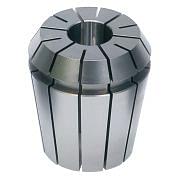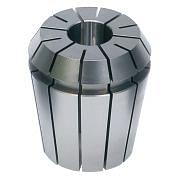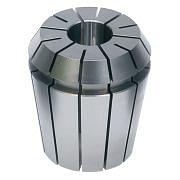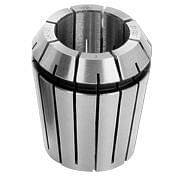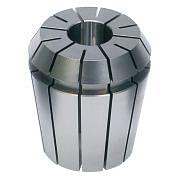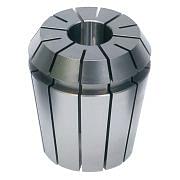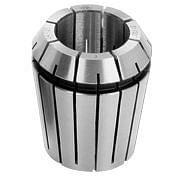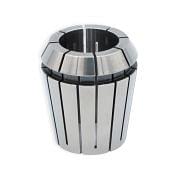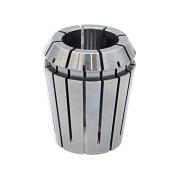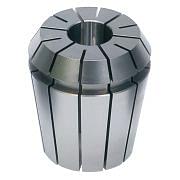Spring collects for locking and chucks
Elastic collets for spindles are fundamental components in machine shops, essential to guarantee the precision and efficiency of machining operations on machine tools. Mainly used for clamping tools or workpieces, these collets are characterised by their ability to adapt to different dimensions thanks to their elastic structure.
Features of the Elastic Spindle Collets
- High Quality Materials: The elastic collets are made of high-strength steel, ensuring durability and wear resistance. This material allows them to withstand high working loads without deforming.
- Precision: One of the main features of elastic collets for chucks is their ability to maintain high clamping accuracy, minimising vibration during machining.
- Adaptability: Thanks to their design, elastic collets can adapt to various tool diameters, offering a versatility that makes them indispensable in various mechanical applications.
Advantages of Elastic Collets for Spindles:
- Greater Machining Accuracy: Elastic collets ensure stable and precise clamping, which is essential for high-precision machining such as turning, milling and drilling.
- Ease of Use: Changing spring collets is quick and easy, reducing machine downtime and increasing overall workshop productivity.
- Versatility: Usable on different types of spindles and machine tools, collets provide a universal solution for multiple clamping needs.
- Vibration Reduction: Thanks to their elasticity, these collets absorb part of the vibrations generated during machining, improving the quality of the finished product and tool life.
In modern machine shops, elastic chuck collets are used in a variety of operations, including:
- Turning: They allow lathe tools to be precisely clamped, ensuring uniform and precise machining.
- Milling: In milling operations, spring collets keep the tool stable, improving the quality of the machined surface.
- Drilling: They provide secure clamping for drill bits, reducing the risk of errors and improving the accuracy of holes.
Spring collets for chucks are essential tools in machine shops for their ability to guarantee precision, adaptability and reduced vibration.

